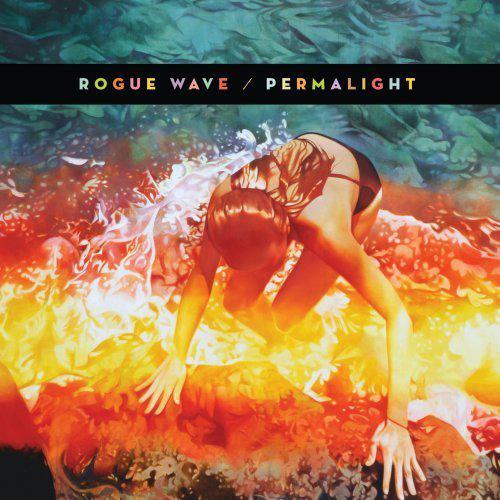
News
Summers Will Not Finish Semester of Teaching as Harvard Investigates Epstein Ties

News
Harvard College Students Report Favoring Divestment from Israel in HUA Survey

News
‘He Should Resign’: Harvard Undergrads Take Hard Line Against Summers Over Epstein Scandal

News
Harvard To Launch New Investigation Into Epstein’s Ties to Summers, Other University Affiliates

News
Harvard Students To Vote on Divestment From Israel in Inaugural HUA Election Survey
Rogue Wave
"Permalight" (Brushfire) -- 3.5 STARS

“Permalight” finds Rogue Wave in transition. The Bay Area indie band’s first two albums, 2003’s “Out of the Shadows” and 2005’s “Descend Like Vultures,” were both critically praised as mixtures of lo-fi acoustic numbers, rockers, and soulful, sometimes morose pop songs, drawing endless comparisons to classic indie bands like Built to Spill and The Shins. Before their 2007 follow-up, “Asleep at Heaven’s Gate,” they were dropped by their Sub Pop label, but found a home with Jack Johnson’s Brushfire Records. That album found them moving in a new direction, embracing a more highly produced aesthetic that used studio effects to create a spacey and dreamy sound.
The band continues in a similar direction on “Permalight,” not only by incorporating studio sounds, but making them a fundamental part of the album. If a return to the lo-fi sounds of their early recordings seemed unlikely after “Asleep at Heaven’s Gate,” “Permalight” makes it seem almost impossible. Rogue Wave haven’t lost their penchant for crafting incredibly appealing hook-laden melodies, which ensure the memorable impression “Permalight” leaves.
“Solitary Gun,” the album’s opening track, is perhaps its most satisfying. From a sparse acoustic guitar opening, frontman Zach Rogue quietly asks a simple romantic question, “Will I follow you down the line?” As soon as he asks, the acoustic guitar picks up and the listener is drawn into a hook-laden, delightfully melodic song. The most pleasing aspect is the limited studio production, which leaves mostly unadorned the song’s mix of acoustic and electric guitar, drums backed up with handclaps, and bass.
The rest of the album’s first half is driven more by electronic beats, heavy rhythms, and layered vocal harmonies, however, giving Side A its catchy and occasionally danceable sound. On “Good Morning (The Future),” Rogue states, “The future / isn’t what it used to be / I’m not surprised.” With this, he seems to sum up the band’s current direction: a perhaps-not-unexpected move from an intimate sound into more electronic pop.
Although Rogue’s melodic vocals fit beautifully into his band’s arrangements, there are points at which his artistic wisdom comes into question. He sometimes sings with an oddly affected British accent, particularly on the otherwise appealing “Stars and Stripes.” Though that song is capable of overcoming Rogue’s misstep, on “You Have Boarded,” his vocals make the song sound like a poor Franz Ferdinand B-side.
Lyrically, the album isn’t particularly fascinating or thought-provoking. At their worst, the lyrics are inane nonsense—“Never had a false alarm / Softer than a baby’s arm”—but there are moments that are much cleverer—“All I have is time / To bring back this bloodline of mine.” However, considering the fact that Rogue’s voice is sometimes inaudible over the band’s walls of sound, this weakness doesn’t seem to be a major concern for the band.
The most disappointing aspect of the album, though, is its lack of intimacy. The electronic beats and layered guitars become wearying, particularly in the album’s second half. This is true even on the slower songs, like the throwaway closer “All that Remains” and the otherwise enjoyable “Sleepwalker,” which is clearly in the vein of vintage Built to Spill. These tracks present a dreamlike atmosphere reminiscent of Rogue Wave’s early albums, but sabotage this with an ever-present driving beat that prioritizes a misplaced musical dynamism over subtle songwriting.
Rogue Wave fail to completely move away from their indie intimacy, yet can’t come to terms with embracing their newfound love of the studio, which is better used on the album’s first half. Instead, the band occasionally takes a middling arena-rock approach, weakening the songs by starving them of the sentiment of their earlier work, while trying to build upon the grandiose and bombastic statements of their third album.
This is not to say “Permalight” is a bad record, but it’s certainly an uneven one. The captivating hooks of the album’s first half showcase an engaging sound for the band, but the second half never reaches those heights. At this point in their career, it’s understandable that Rogue Wave is in transition, but they haven’t yet quite figured out how to effectively innovate their core sound.
Want to keep up with breaking news? Subscribe to our email newsletter.
